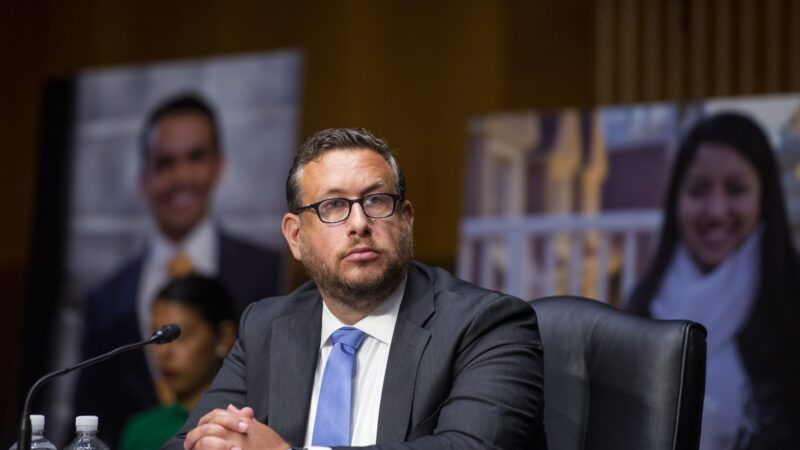Trump Is Shutting Off America's Talent Pipeline
A new push to end work programs for international students will drive away skilled graduates and restrict U.S. innovation.

With attention focused on workplace raids and National Guard troops in Los Angeles, it is easy to overlook the Trump administration's policies on legal immigration. Those policies came into focus at a Senate hearing last month when Joseph Edlow, nominated to be the director of United States Citizenship and Immigration Services (USCIS), pledged to shut off America's talent pipeline.
Edlow told the Senate Judiciary Committee on May 21, 2025, that he would end Optional Practical Training (OPT), which allows international students to work for 12 months in their course of study, typically after graduating. He said he would also eliminate STEM OPT, which enables students to gain practical experience by working an extra 24 months (beyond OPT) in a science, technology, engineering, or math field. The additional 24 months in STEM OPT gives employers a better chance to obtain an H-1B petition for students by entering the H-1B lottery in multiple years, a primary reason the Bush administration added STEM OPT in 2008.
Edlow said he wanted to "remove the ability for employment authorizations for F-1 students beyond the time that they are in school." That phrasing may be sleight of hand. A program already exists for working while in school, called Curricular Practical Training, but it's not as widely used as OPT and STEM OPT.
In the 2023–2024 academic year, 163,452 international students engaged in post-completion OPT, and 79,330 students were in STEM OPT, totaling 242,782, according to the Institute of International Education.
Edlow may be promoting the policy already determined by Stephen Miller, the architect of the administration's immigration policy, who has a history of opposing international students staying in America. The Wall Street Journal reported that during President Donald Trump's first term, Miller tried to eliminate STEM OPT but was blocked by Trump's son-in-law, Jared Kushner. In 2015, Miller helped draft a bill as a staffer for Sen. Jeff Sessions (R–Ala.) that would have ended OPT, banned international students with master's or bachelor's degrees from working in the United States in H-1B status for at least 10 years after graduation, and prohibited doctorate holders from doing so for at least two years. The Financial Times reported that Miller sought to ban Chinese students from U.S. universities during Trump's first term.
The first six months of Trump's second term have seen several policies directed against international students, including new limits on Chinese students, attempts to deport thousands of students for minor offenses, new social media screenings for international students, and ending Harvard University's ability to enroll foreign students.
"Foreign graduates of U.S. universities cause major increases in innovation," according to research by George Mason University economics professor Michael Clemens. "Immigration policy that broadly seeks ways to entice foreign graduates of U.S. universities to remain in the United States, the overwhelming mass of evidence suggests, would serve the national interest. Terminating OPT would do the opposite."
Madeline Zavodny, an economics professor at the University of North Florida, found in a study by the National Foundation for American Policy that, contrary to some concerns, OPT is associated with lower unemployment rates for U.S. workers in STEM fields. Zavodny also found that enrolling immigrants and international students could allow many U.S. universities to survive as the U.S.-born college-aged population declines.
Ending the ability of international students to work after graduation would contradict what then-presidential candidate Trump told venture capitalists during the All-In podcast in June 2024. "What I want to do, and what I will do, is you graduate from a college, I think you should get automatically, as part of your diploma, a green card to be able to stay in this country."
Michelle Zatlyn, president, COO, and cofounder of Cloudflare, a company with a market capitalization of $54 billion and 2,400 U.S.-based employees, told me, "The best thing the U.S. government has done on immigration is OPT to allow international students a chance to stay and work for a time after graduation. It allowed me to work with Matthew Prince on the business plan that helped create the company."
International students represent 71 percent of the full-time graduate students in computer and information sciences and 73 percent in electrical and computer engineering at U.S. universities. It is already much easier to transition from a student visa to a work visa and then to permanent residence in Canada and other countries than in the United States. International student interest in coming to U.S. universities will plummet without the ability to work in their field after graduation. That will sever America's talent pipeline.


Show Comments (68)